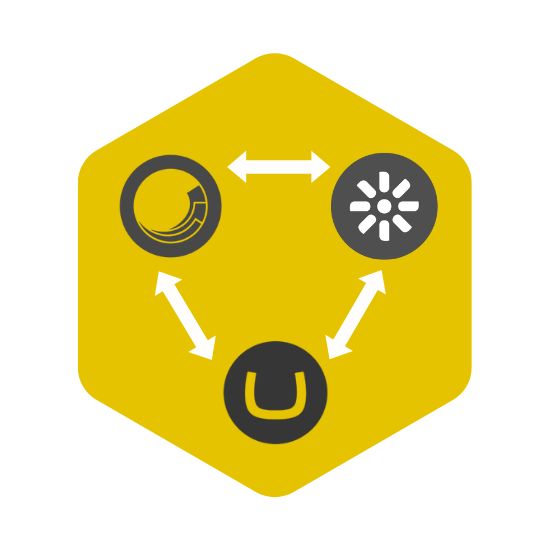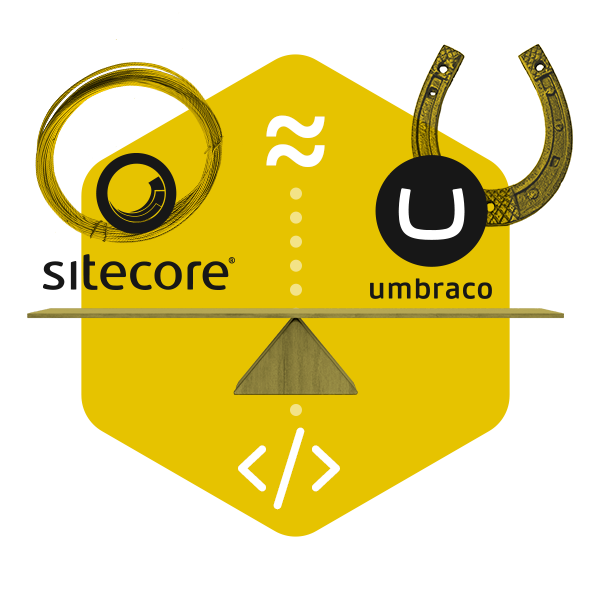Factors to Consider When Choosing a CMS
Selecting the right Content Management System (CMS) is essential for businesses growth.
Platforms such as Sitecore, Kentico and Umbraco cater to diverse needs, offering flexibility, scalability and innovative features like headless capability and composable architectures. Let's explore the considerations and compare their platforms’ strengths.

Creating Personalised Experiences
Customers today expect tailored experiences that cater to their preferences and behaviours. A CMS should unify customer touchpoints across digital platforms to deliver this level of personalisation.
Umbraco, with its open-source flexibility, allows businesses to build custom solutions that address specific personalisation needs.
Kentico provides robust personalisation features, especially for mid-sized businesses, without overcomplicating workflows.
Sitecore excels in creating deeply personalised, data-driven experiences, integrating seamlessly across channels.

Ensuring Scalability for Growth
For businesses with high traffic or complex content needs, performance and scalability are key.
Sitecore delivers enterprise-grade scalability, making it suitable for large organisations.
Kentico strikes a balance between affordability and scalability, accommodating businesses looking for reliable growth support.
Umbraco performs well in smaller-scale environments and can scale effectively with the right infrastructure.

Prioritising Performance with a Headless CMS
A CMS with headless architecture separates the backend content management from the front-end presentation, enabling seamless high performing delivery of webpages.
Sitecore supports headless delivery and offers integrated tools for marketing and analytics, ensuring consistency across channels.
Umbraco, as a highly customisable platform, can function effectively in headless setups, integrating easily with APIs and external systems.
Kentico combines traditional and headless options, providing flexibility for businesses transitioning to omnichannel delivery.
Choosing Between Composable and Monolithic CMS Models
The choice between a composable or monolithic CMS depends on your organisation's flexibility and integration needs with tools such as CRM systems.
What is Monolithic and Composable?
Monolithic CMS: This traditional approach offers an all-in-one solution, integrating features like content editing, marketing automation, and analytics within a single platform. While easier to implement, it may lack the flexibility of composable solutions.
Composable CMS: A modular approach that integrates best-of-breed tools for specific functionalities, offering greater flexibility and adaptability. However, it may require more development resources.
Platform offerings
Sitecore offers a hybrid approach, excelling in composable architecture by allowing integration with third-party tools while retaining its core capabilities for businesses needing a monolithic solution.
Kentico provides both options, offering a monolithic, all-in-one solution in Kentico Xperience or composable elements for more customised deployments.
Umbraco is inherently composable due to its open-source foundation, allowing developers to select and integrate the exact tools needed for their specific use case.

Streamlining Multilingual Content for Global Reach
Managing content across multiple languages and regions is vital for businesses targeting international markets.
Kentico simplifies multilingual workflows, offering intuitive interfaces for localisation.
Sitecore features advanced tools for managing multilingual content and regional customisation.
Umbraco supports localisation through its extensible architecture, allowing businesses to implement solutions tailored to their requirements.

How to Choose the Right CMS
Define your organisation's needs, both immediate and long-term, considering factors such as:
- Required performance needs
- Scalability to handle future growth
- Integration with existing systems and emerging technologies
- Costs of implementation
In our experience, each CMS suits a whole host of needs:
Umbraco is highly adaptable, providing flexibility for organisations with evolving needs.
Sitecore is well-suited for enterprises planning for long-term scalability and advanced analytics.
Kentico balances future-proofing with straightforward implementation, making it accessible to smaller teams.
Researching CMS Options
| Focus on: | CMS Implementation Experts: |
|---|---|
|
For businesses without extensive technical resources, partnering with a CMS implementation expert can help align the platform with broader digital strategies.
These can be found on their corresponding Partner Portals:
|
Final Thoughts
Whether opting for a traditional, headless, or fully composable CMS, platforms like Sitecore, Kentico and Umbraco offer solutions to meet a wide range of organisational needs.
Choosing a CMS depends on your integration requirements, flexibility preferences and long-term goals. Investing in the right CMS will empower your organisation to deliver exceptional digital experiences now and in the future.
For expert guidance, get in touch with us to find the perfect CMS for your needs.

